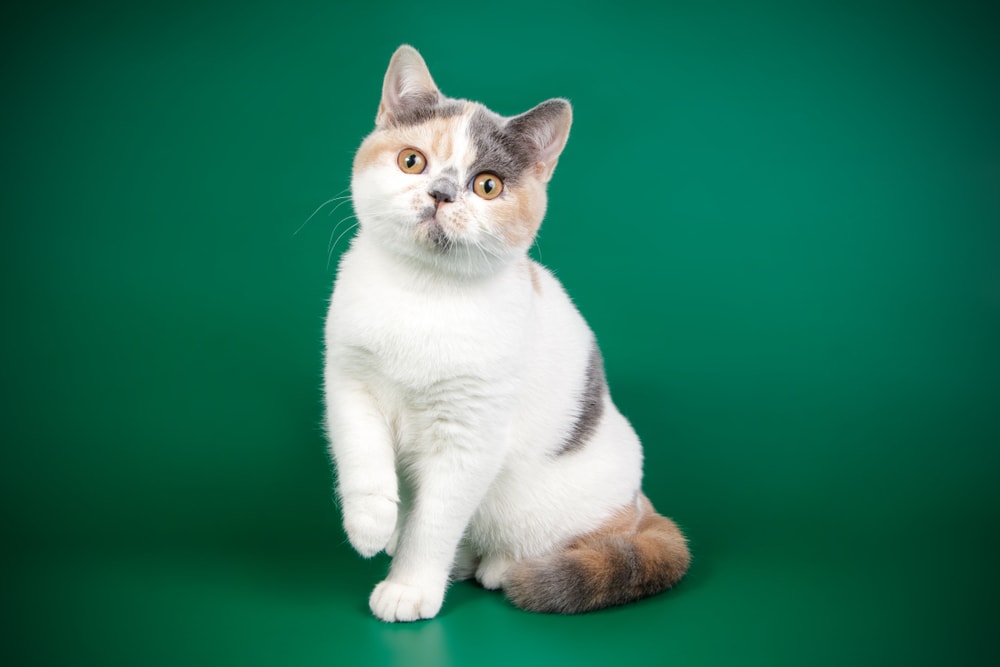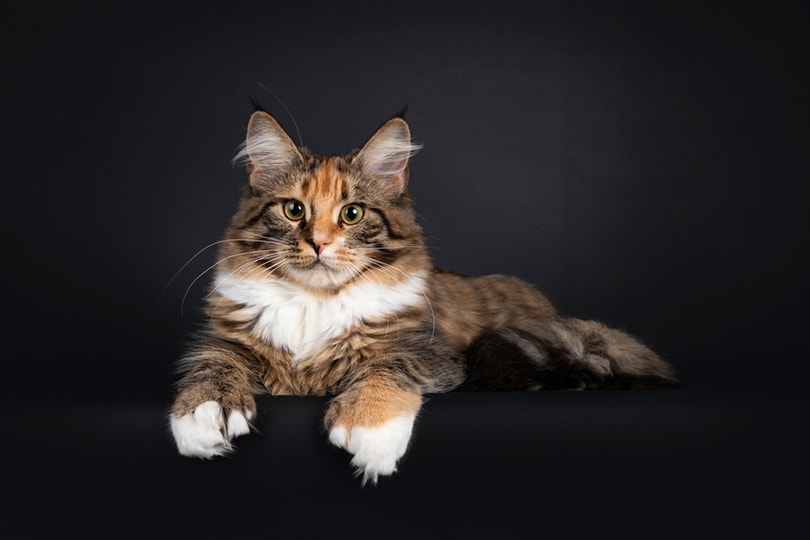How to Get Rid of Fleas on Kittens at Home: Vet-Approved Remedies & FAQ
Updated on
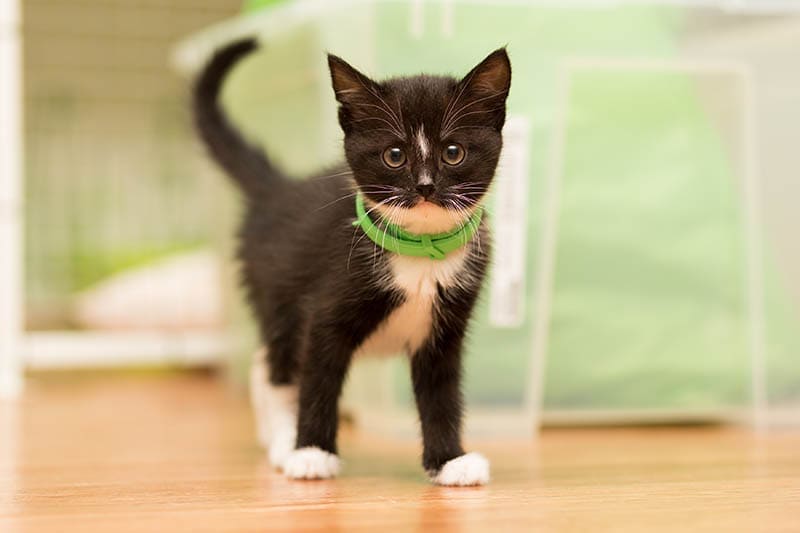
Your kitten is scratching incessantly and has spots on their coat that show slight hair loss. You’re not entirely sure what’s going on until you see the tell-tale black specks in their fur or on their favorite bed. Fleas. Great.
Young cats are hard to treat for fleas because only a handful of products on the market are designed for use on kittens. If your pet is younger than eight weeks, you may find yourself dealing with fleas for some time before your kitty can get proper treatment.
So, what is a pet owner to do when their kittens get fleas? Read on to find several methods for addressing your kitten’s flea problem at home.
- How to Get Rid of Fleas on Kittens
- Flea Treatment Risks in Kittens
- Other At-Home Remedies Effectiveness
How to Get Rid of Fleas on Kittens
1. Use a Flea Comb
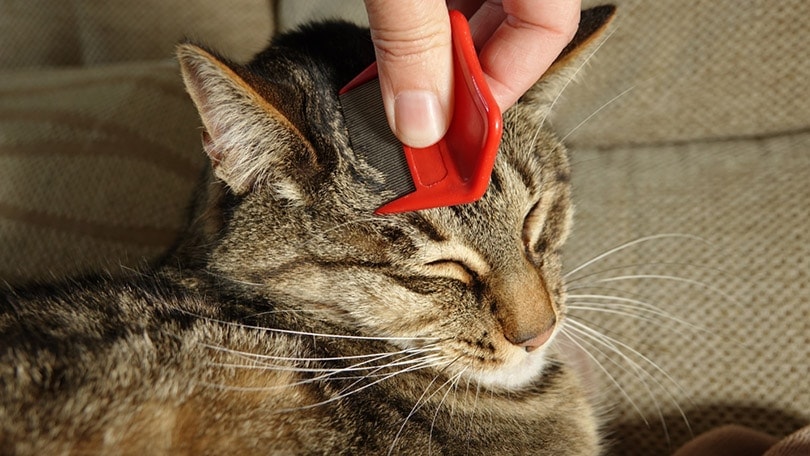
For kittens under 8 weeks, you can safely use a flea comb at home to find adult fleas. If they are dead, great news; if they are still alive, your flea problem is out of control. Comb them once or twice daily to remove the adult fleas. Dip the comb in hot, soapy water to increase your chances of removing the fleas.
2. Bathe Your Kitten
As long as you use a cat flea shampoo that can safely be used on kittens, this is another method you can add to your battle against fleas. However, most cats don’t enjoy a bath, so watch your kitten for signs of distress. There is a right and a wrong way to bathe a kitten.
Bathe them only once or twice a week, as any more than that can be damaging and drying for your kitten’s sensitive skin. Use warm water in the bath and dry it as soon as the bath is over. Kittens this young aren’t very good at maintaining their body temperatures.
Do not use flea shampoos if your kitten is under 12 weeks old. It’s important to note that combing and bathing will only rid your kitten of adult fleas. These approaches are unfortunately not capable of preventing new fleas from hatching, but they are safe for kittens who are too young for commercial flea treatments.
3. Use a Topical Treatment
- Our Recommendation: Advantage II Flea Spot Treatment for Cats
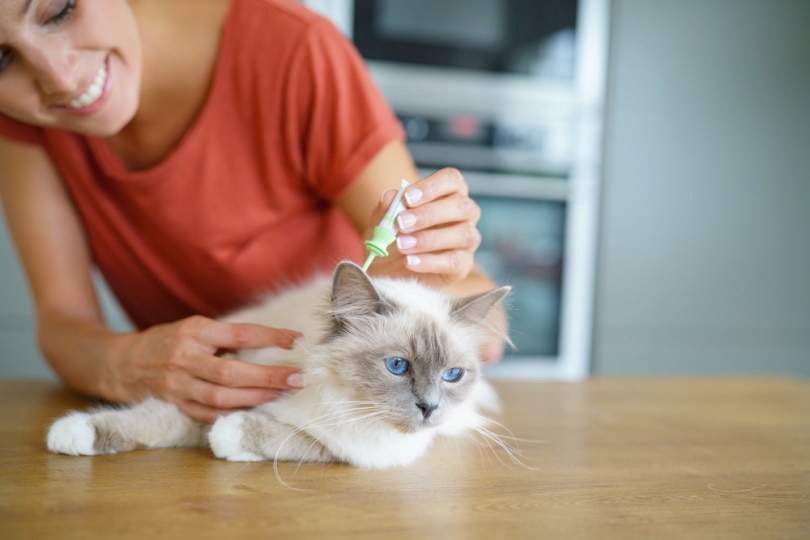
Some flea treatments are safe for kittens that are over 8 weeks and as small as 2 pounds.
Advantage II is topical treatment safe for kittens over 8 weeks. This particular product is designed for kittens between 2 to 5 pounds. It’s a powerful treatment that kills fleas in all their life stages.
Flea treatments can take a while to completely rid your kitten of its issue so be patient and never double up on doses. Ensure you complete the follow-up care, too. Some medications require a second application to ensure all fleas in all life cycle stages are killed. Speak to your vet about the best option for your kitten’s own unique circumstances.
4. Get Fleas Out of Your Home
Fleas can be difficult to remove from your home, but if you don’t do a thorough clean, you risk re-infestations.
Wash your bedding and your kitty’s bed in hot water, and vacuum any areas of your home with carpets. Dump your vacuum’s canister outside to keep them out of your house. You might also consider steam cleaning rugs to kill any fleas lingering in the carpet fibers.
5. Treat Every Pet
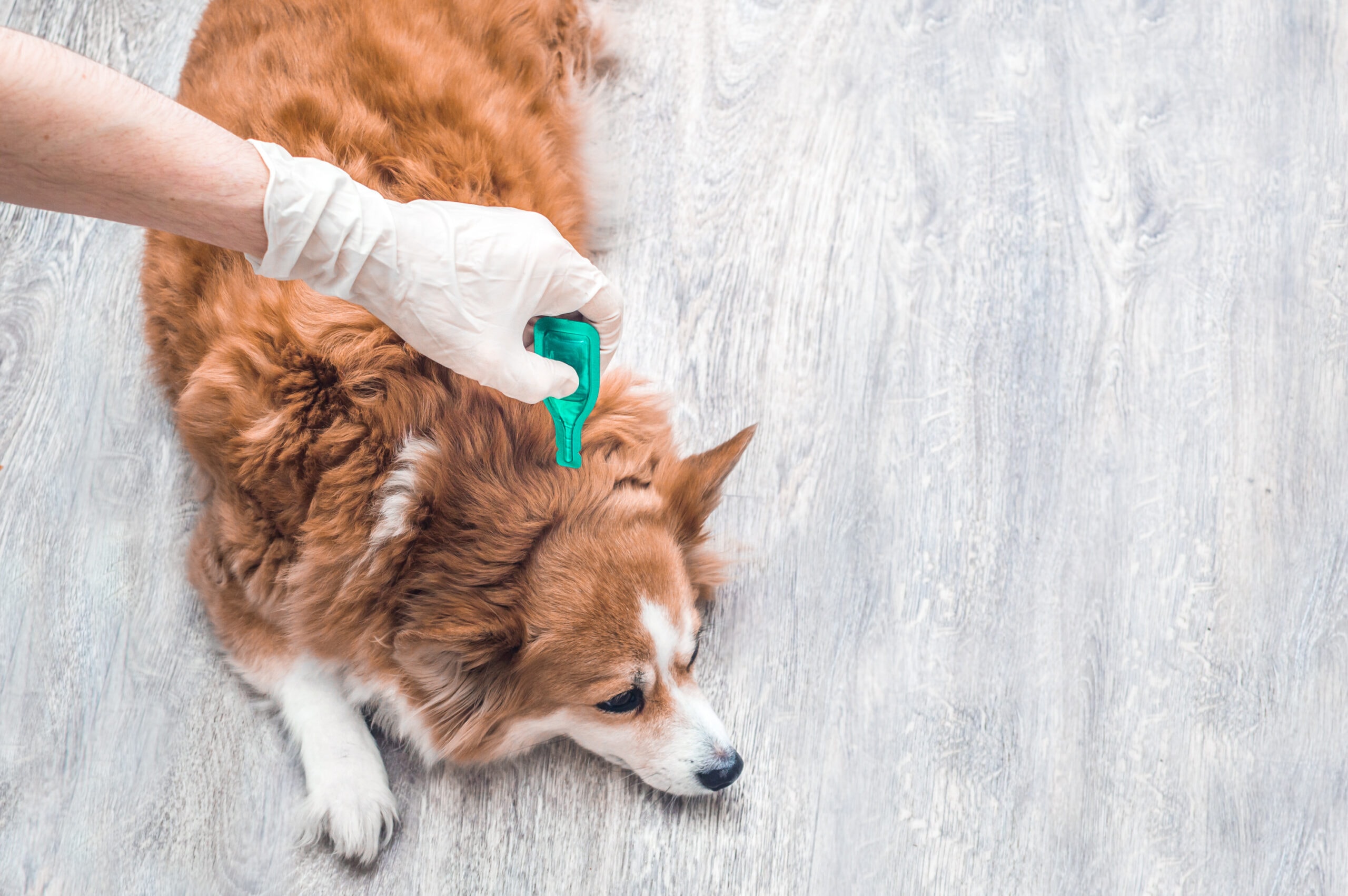
Even if only one of your kittens has fleas, you’ll need to treat every pet in the home as if they also have them. Failure to do so can result in re-infestations.
Frequently Asked Questions
Can’t I Just Use a Flea Treatment?
Most commercial flea treatments are safe to use in kittens older than eight to 10 weeks or those weighing more than two pounds. Flea products are typically not tested on kittens younger or lighter than that, so they may contain doses much too high for tiny kittens.
Read the label on any commercial flea treatment thoroughly to see if it is appropriate for your kitten. If you determine that it is safe to use, read the instructions carefully to ensure you’re getting the dosage right. Of course, your best bet is to contact your veterinarian to help you find a suitable product safe for your kitten’s age and size.
In addition, flea treatments can be toxic for kittens if too much product or the wrong product is used. Cats have a poor ability to process certain kinds of drugs and chemicals, resulting in toxicity even at low doses.
One of the main flea drugs to steer clear of is permethrin. This medication is very effective against fleas, so it’s in many medications, but it is highly toxic to cats of all ages if administered at inappropriate doses.
Organophosphates are another compound commonly found in flea and tick treatments like flea collars 1. In extreme situations, organophosphate poisoning can cause seizures or death.
Permethrin toxicity can develop within a few minutes to hours after initial exposure.
- Nausea
- Drooling
- Diarrhea
- Vomiting
- Weakness
- Tremors/shaking
- Twitching
- Difficult breathing
- Seizures
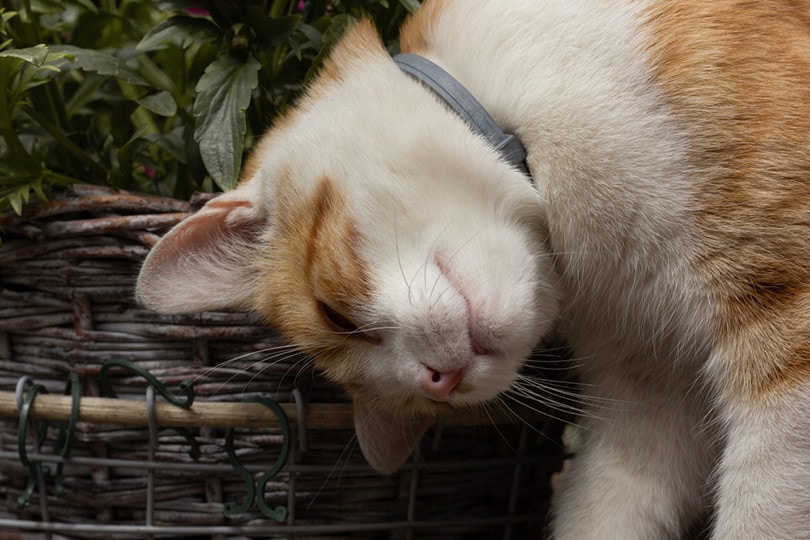
What About Other At-Home Remedies?
The internet is wonderful in many ways as it provides instantaneous access to all information you’ve ever wanted to know. However, it can be problematic and downright dangerous when bad advice that could cause harm is passed around.
You may have stumbled across blogs touting natural at-home flea remedies in your Google search. While we’re sure the authors of such blogs are well-meaning, some of their advice is inaccurate and dangerous.
Some websites recommend putting garlic and brewer’s yeast on your cat’s food to make your cat less appealing in smell and taste for fleas. Garlic is not an effective flea treatment, nor is it safe to give your cat.
Other sites suggest spraying apple cider vinegar on your pet and its bedding will keep fleas away. Unfortunately, while dousing your kitty in ACV may be effective at keeping you away from your pet, it doesn’t stand up against fleas.
Humans may use some essential oils as a natural insect repellent, but they should not be used on pets. Cats cannot process the compounds that essential oils contain, and they could be toxic, even at low doses.
Conclusion
While some over-the-counter flea treatments are safe for kittens over 8 weeks, those younger should only be treated with products recommended by your vet. When your kitten is old enough for OTC flea medication, follow the instructions to prevent overdoses. You should contact your veterinarian anytime your cat suffers from an infestation, as fleas are not only a nuisance but they carry nasty diseases and can pose a serious health problem to your kitty.
Featured Image Credit: Fayzulin Serg, Shutterstock



